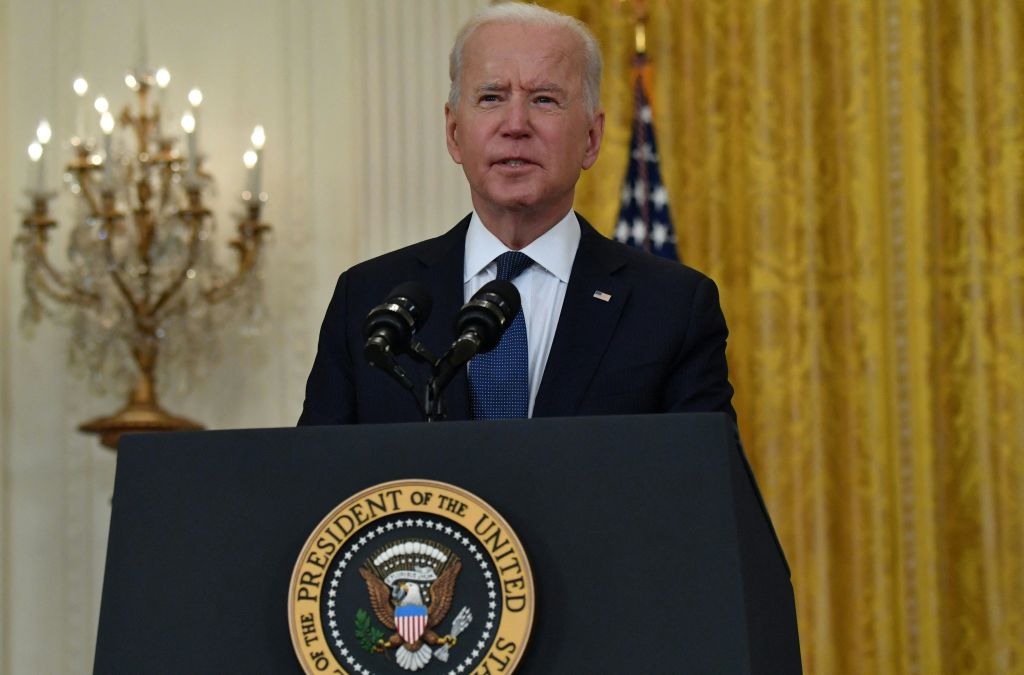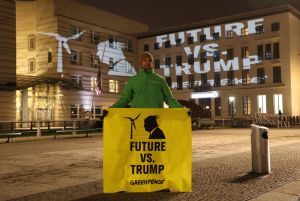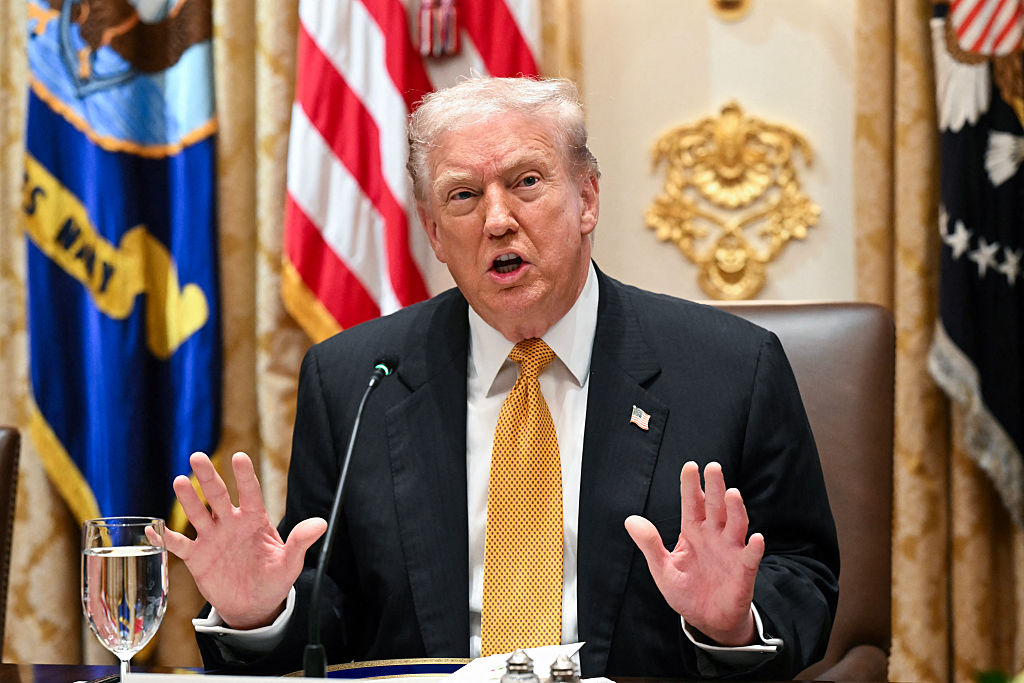It wasn’t the exact same speech, but the words were familiar and the message was identical.
President Biden addressed the disappointing April jobs report on Monday, just as he did on Friday. Economists had expected the economy to create as many as one million jobs in that month, but employers added just 266,000. Biden insists that everything will be all right.
It takes time to recover from a once-in-a-century pandemic, he said, urging patience both days and no doubt sensing the political danger a slowing economy puts on his ambitious infrastructure package and other spending proposals.
On Friday, the president asserted that his $1.9 trillion stimulus package was a long-term play: ‘We never thought that after the first 50 or 60 days everything would be fine.’ On Monday, he reiterated that he never said, and no serious analyst ever said, ‘that climbing out of the deep, deep hole our economy was in would be simple, easy, immediate, or perfectly studied’.
There will be good months, and bad months. But what really matters, according to the president, is the overall picture. ‘The question is: what is the trend line? Are we headed in the right direction? Are we taking the right steps to keep it going? And the answer clearly is yes.’
While economists were wrong with their rosy jobs forecast, Biden touted the fact that his administration oversaw ‘the most jobs created in the first 100 days [in office] of any president on record’. He inherited a vaccine but a slow economy, one that was adding just 60,000 new jobs a month. More than half the adult population has now received at least one dose of that vaccine, and the economy has added more than 1.5 million jobs. For any historian keeping track at home, Biden noted that that figure was ‘more than three times the solid job creation President Carter saw in his first 100 days. And more than six times what President Reagan saw’.
He spoke into a camera in the East Room while accompanied by Vice President Harris. His only audience was a small group of reporters, many of whom had heard him the first time when he said the April jobs report was nothing to worry about. And on Monday, the President outlined a little more of how his mammoth American Rescue Plan would be spent.
The Treasury Department opened the floodgates Monday for state and local governments to get a share of the $350 billion in relief that Congress appropriated earlier in the year. And on the same day, the administration sent relief checks to 16,000 of the hardest hit restaurants and bars.
None of this is enough, though, and the buzzwords of the Biden administration thus far have been ‘urgency’ and ‘investment’. It branded the first stimulus as a rescue plan that was urgently needed to shore up the economy. It is now pushing a $2.3 trillion infrastructure package and a $1.8 trillion American Families Plan as the follow-through part of the campaign promise to “build back better.”
But the April numbers may have impacted momentum. Before the White House announced that Biden would make a second address on Monday, Republicans and Democrats were already arguing on the Sunday shows that the slowing economy was evidence for each of their dueling political positions.
‘It is a terrible jobs report, not what we were expecting at all,’ Utah governor Spencer Cox said on CNN, making the Republican case that the numbers were the predictable consequence of too generous unemployment benefits. ‘But that’s what happens when we pay people not to work.’
House Majority Whip James Clyburn said on the same network that the idea that anyone would collect unemployment rather than look for work was akin to ‘the Big Lie’ that the election had been stolen from Donald Trump. ‘This notion that people don’t want to go to work because they’d rather stay at home, that they will make more money drawing unemployment, I’ve been hearing that all of my life,’ Clyburn said. ‘It has never been true. It’s not true now. I don’t think it will ever be true.’
Treasury secretary Janet Yellen has also said as much, telling reporters on Friday that generous benefits were not hurting employment, and White House press secretary Jen Psaki said the same Monday, insisting that ‘we don’t see much evidence that the extra unemployment insurance is a major driver in people not rejoining the workforce’. Then, less than an hour later, the President addressed at length an issue that his team said was not a problem.
It was not the first time. Asked on Friday if unemployment benefits were creating a disincentive for people returning to work, Biden answered with just three words: ‘No, nothing measurable.’ Republican criticism apparently landed over the weekend, though, because Biden gave a more robust defense in his prepared remarks on Monday.
‘If you’re receiving unemployment benefits and you’re offered a suitable job, you can’t refuse that job and just keep getting unemployment benefits,’ he said. There are some COVID specific exceptions, he noted, ‘but that’s the law.’
According to economists at Bank of America, anyone previously making less than $32,000 a year is better in the short-term just receiving unemployment benefits. ‘There is definitely a job paradox that’s going on,’ Joe Song, senior US economist at Bank of America Corp, told Bloomberg News. It’s difficult to quantify, ‘but it’s clearly a challenge that’s weighing on a quicker pace of recovery’.
Biden didn’t make much of such reports. He dismissed the analysis as patronizing, if not unpatriotic: ‘I think the people who claim Americans won’t work, even if they find a good and fair opportunity, underestimate the American people.’
This article was originally published on RealClearPolitics.

























